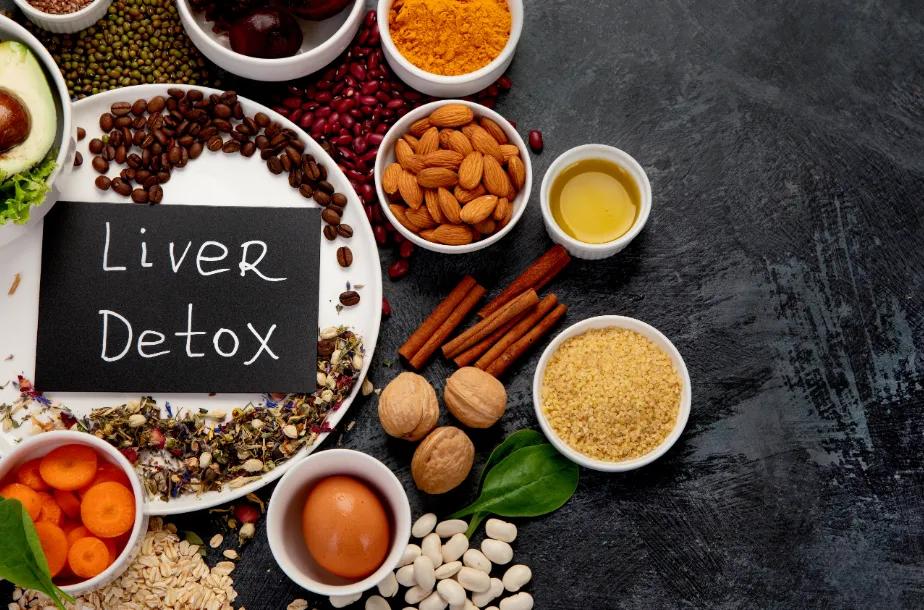Understanding Fatty Liver and How to Take Care of Your Liver

The liver is a vital organ that is crucial in maintaining overall health and wellness. Its multifunctional nature allows it to perform over 500 essential tasks vital for the proper functioning of the human body.
One of the liver's primary functions is the detoxification of harmful substances. It filters out toxins and waste products from the bloodstream, preventing them from circulating throughout the body and causing potential damage. Additionally, it metabolizes drugs and medications, making them more easily processed and eliminated by the body.
The liver also plays a crucial role in the digestion and absorption of nutrients. It produces bile, which helps break down and absorb fats and fat-soluble vitamins. Bile is stored in the gallbladder and released into the small intestine when needed during the digestion process. Furthermore, the liver produces proteins essential for blood clotting and immune system function.
Another essential function of the liver is the regulation of blood sugar levels. It stores excess glucose as glycogen and releases it into the bloodstream when the body needs a quick energy source. This balance helps to maintain stable blood sugar levels and prevent conditions such as hypoglycemia or hyperglycemia.
Moreover, the liver is responsible for the production of cholesterol and triglycerides, which are essential for the formation of cell membranes and the synthesis of hormones. It also breaks down old or damaged red blood cells, recycling their components and ensuring the proper functioning of the circulatory system.
In addition to its numerous metabolic functions, the liver also produces and regulates hormones. It produces insulin-like growth factor 1 (IGF-1), essential for growth and development. Additionally, it metabolizes hormones such as estrogen, testosterone, and thyroid hormones, ensuring the balance and proper functioning of the endocrine system.
Due to the liver's critical role in maintaining overall health, it is susceptible to various diseases and conditions. Liver diseases, such as hepatitis, cirrhosis, or fatty liver disease, can significantly impact its ability to perform its functions properly, leading to various complications. Therefore, maintaining a healthy lifestyle, including a balanced diet, regular exercise, and limiting alcohol consumption, is crucial for optimal liver function.
In this blog post, we will explore the causes of fatty liver and debunk some common misconceptions about its treatment. We will also discuss the foods to avoid and the importance of a holistic approach to liver health.
Causes of Fatty Liver:
Contrary to popular belief, not all cases of fatty liver are caused by alcohol consumption. The foods we eat play a significant role in developing this condition. While excessive alcohol intake can undoubtedly contribute to the development of alcoholic fatty liver disease, there is another form of the condition known as nonalcoholic fatty liver disease (NAFLD). NAFLD is characterized by the accumulation of fat in the liver, unrelated to alcohol consumption.
The prevalence of NAFLD has been steadily increasing worldwide, primarily due to lifestyle changes and dietary habits. The foods we consume can profoundly impact liver health and contribute to the development of this condition. A diet high in processed foods added sugars, unhealthy fats, and excessive calories is often associated with NAFLD.
Certain dietary factors have been identified as significant contributors to the development and progression of fatty liver disease. Excessive consumption of sugary beverages, such as soda and fruit juices, has been strongly linked to NAFLD. These drinks are high in fructose, which the liver converts into fat. Consuming large amounts of refined carbohydrates, such as white bread, pasta, and pastries, can also promote fat accumulation in the liver.
Moreover, a diet that lacks essential nutrients, including vitamins and minerals, can impair liver function and exacerbate fatty liver disease. Inadequate intake of antioxidants, such as vitamin E and omega-3 fatty acids, found in fish and certain nuts has been associated with an increased risk of NAFLD.
Debunking Myths:
Several misconceptions about the foods should be avoided to maintain liver health. One common myth is that sodium should be restricted due to its association with water retention. However, unless an individual has a specific medical condition that affects sodium regulation, there is no need to worry about sodium intake or fatty liver. Despite the misconception that sodium consumption is directly linked to water retention, it is essential to note that there is no need for concern regarding sodium intake and its impact on fatty liver without a medical condition affecting sodium regulation.
Another myth is that red meat should be avoided because it is high in saturated fat. While red meat does contain saturated fat, it is not a direct cause of fatty liver. Similarly, fried foods are often discouraged due to their high fat and calorie content. However, the issue lies in the quality of the oils used in frying rather than the amount of fat or calories.
Understanding the Real Causes:
To effectively address fatty liver, it is essential to understand its root causes. Fatty liver occurs when the liver becomes congested due to an overload of substances that only the liver can process. These substances primarily include fat and alcohol but can also include medications, toxins, and certain medical conditions. The accumulation of fat in the liver leads to inflammation and can progress to more severe conditions such as nonalcoholic fatty liver disease (NAFLD) or alcoholic fatty liver disease (AFLD).
Additionally, high insulin levels can aggravate fatty liver. Insulin is a storage hormone that prevents fat burning in the liver and perpetuates insulin resistance. Therefore, it is crucial to reduce the intake of alcohol, added sugars, fructose, and processed foods fried in plant oils to alleviate liver congestion and improve liver health.
The Importance of a Holistic Approach:
Rather than relying on superfoods as a remedy, adopting a holistic approach to liver health is essential. To effectively address liver health, it is crucial to move beyond relying on superfoods as a sole remedy. A holistic approach encompassing various aspects of a person's lifestyle is essential for maintaining and improving liver health.

First and foremost, adopting a balanced and nutritious diet is vital for supporting liver function. While superfoods may provide certain beneficial nutrients, focusing on overall dietary patterns that include a variety of fruits, vegetables, whole grains, lean proteins, and healthy fats is vital. Emphasizing foods rich in antioxidants, such as berries, leafy greens, and cruciferous vegetables, can help protect the liver from oxidative stress. Additionally, reducing the consumption of processed foods, sugary beverages, and excessive amounts of alcohol is crucial for maintaining liver health.
Physical activity is another vital component of a holistic approach to liver health. Regular exercise helps promote healthy blood flow, reduces inflammation, and aids in weight management, all of which contribute to optimal liver function. Aim for at least 150 minutes of moderate-intensity aerobic activity or 75 minutes of vigorous-intensity activity each week, along with strength training exercises twice a week.
Managing stress levels is also essential for overall liver health. Chronic stress can lead to inflammation and oxidative damage, negatively impacting liver function. Stress management techniques such as meditation, deep breathing exercises, yoga, or engaging in hobbies and activities that bring joy and relaxation can help reduce stress levels and support liver health.
Furthermore, maintaining a healthy weight is crucial for liver health. Excess body weight, particularly abdominal obesity, increases the risk of developing fatty liver disease and other liver conditions. Therefore, implementing a well-rounded approach that includes a balanced diet, regular exercise, and appropriate portion control can assist in achieving and maintaining a healthy weight and reducing the burden on the liver.
Lastly, it is essential to prioritize regular check-ups with healthcare professionals. Routine liver function tests, such as liver enzyme and imaging studies, can help detect any early signs of liver damage or disease. Consulting with a healthcare provider can provide personalized guidance on maintaining liver health and addressing specific concerns or conditions.
Conclusion:
Taking care of your liver is crucial for overall health and well-being. Understanding the causes of fatty liver and debunking common myths can help you make informed choices about your diet. By avoiding excessive alcohol consumption, added sugars, fructose, and processed foods fried in plant oils, you can reduce liver congestion and improve liver health. Adopting a holistic approach that focuses on handling the root cause of fatty liver, rather than relying on superfoods, is critical to maintaining a healthy liver. Remember, your liver is a vital organ that deserves proper care and attention.
